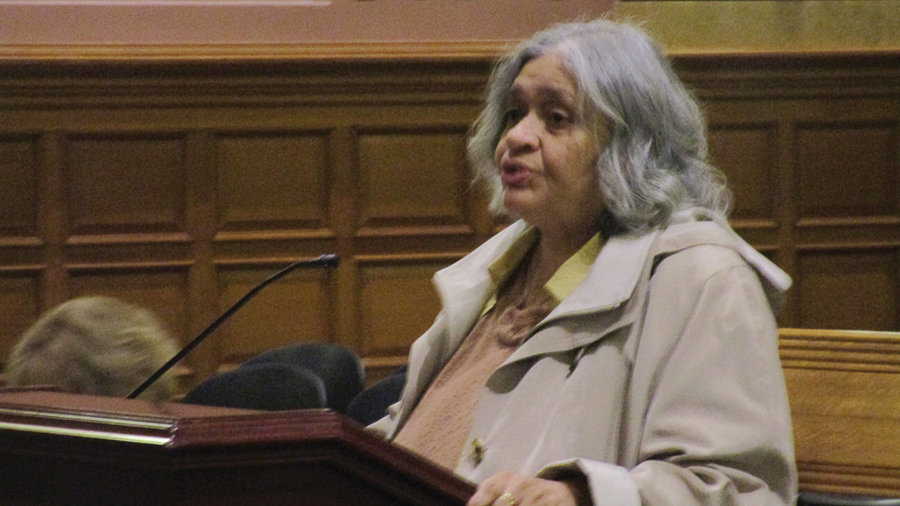Although Jersey City will be allowed to put a referendum on the November ballot asking voters whether to move municipal elections from May to November, the city cannot eliminate runoff elections.
Superior Court Judge Hector R. Velazquez said last week that Jersey City’s form of government will not allow voters to do away with runoffs the way Hoboken did with a separate ballot question a few years ago. It is too late for Jersey City to add such a question, and the administration does not intend to appeal the ruling.
Commonly known as a two-round system, candidates must get 50 percent of the overall vote plus one vote for their victory to be final. That means if three or more candidates run, there may be a runoff between the top two vote getters.
Velazquez said that a vote to approve the change from May to November also inherently meant that runoff elections, if necessary, would be moved from June to December.
The move in Hoboken was largely credited with allowing Mayor Dawn Zimmer to retain her seat as mayor as the result of a three-way race in 2013, because she got the most votes even though she did not get more than 50 percent. Voters in Hoboken were fully aware of the change, and voted on two resolutions when they made the change, one to move the election and the second to eliminate runoffs.
Velazquez said the Fulop Administration also has to strip the referendum of suggestive language such as saying “voters are weary” from too many elections each year.
“Our argument was as a matter of law; a runoff cannot be eliminated without a binding resolution that specifically asks voters.” – Bill Matsikoudis
____________
The lawsuit against the proposed referendum was filed earlier this year by city residents Yvonne Balcer, Pat McCarthy, Josephine Paige, Mia Scanga, and former Councilwoman Viola Richardson, seeking to both modify the language of the referendum and to block attempts by the Fulop Administration to do away with the runoff elections.
“That was the most important part for us,” said Balcer.
Bill Matsikoudis, former city corporation counsel under former Mayor Jerremiah Healy, represented those seeking to retain the runoff in elections, even if the elections are moved to November.
City officials said they have no problem with the language changes that the suit asked for.
“Essentially what we agreed to last week happened,” said Ryan Jacobs, spokesperson for the city. “We were fine with changing the question if the individuals filing the suit paid for the cost of the change. And that is what the judge decided.”
Fulop’s team said the move to November will lower the cost of elections by holding them in the fall when national, state, and other elections are routinely held. Fulop also argued that this will “minimize voter fatigue,” one of the phrases the group objected to.
Balcer said such language was designed to steer voters towards supporting the referendum. Matsikoudis argued that such language had no place in the referendum.
Three concerns
In actuality, the Fulop Administration did not specifically ask for runoffs to be eliminated. But the absence of that language from the referendum about moving the date may have had that result.
“Our argument was, as a matter of law, a runoff cannot be eliminated without a binding resolution that specifically asks voters,” Matsikoudis said. “We wanted a ruling saying that. While the judge did not issue a ruling on it, he did say that voters will understand that a move of the election from May to June will also move the runoff from June to December. He made it clear that a ‘yes’ vote will not eliminate the runoff – which I believe was the intent of the move referendum.”
Velazquez did scold those bringing the suit, because it came extremely late. Now it will be harder to change the language on the ballot, and the objectors will have to pay for that.
“We agreed to pay the cost for removing the language [steering voters a certain way],” said Matsikoudis.
He said that those who filed the suit are also asking voters to reject the move of elections to November.
“We believe a ‘no’ vote is appropriate,” he said. “If the mayor and council race moved, the ballot will be overwhelming.”
He said the 2017 ballot would include candidates for governor, state legislature, public questions, school board, and mayor and council.
“A voter would have to press a button 10 or more times,” he said. “That would be voter fatigue and would lead to confusion. We believe that focusing on municipal elections every four years [in a separate election] is crucial to local concerns.”
Because Jersey City tends to attract more than two candidates for mayor and City Council elections, runoffs have been common in the past. If needed, runoffs would be held in early December. Matsikoudis said that would force voters to come out at a time when it is dark and possibly during inclement weather.
The suit sought to make certain that if voters chose to remove the runoff, this would have to be done in a separate referendum that made it very clear that runoff elections were being eliminated.
The move to move elections to November was authorized by the state legislature in 2010. But unlike towns like Secaucus, where candidates run as Republicans, Democrats, or independents, Jersey City would remain nonpartisan.
Al Sullivan may be reached at asullivan@hudsonreporter.com.
